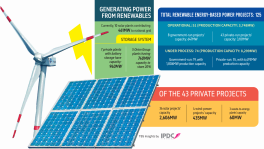How are Amartya Sen’s thoughts relevant for contemporary Bangladesh?
While Bangladesh may have shown a different kind of pathway for achieving rapid progress in social indicators at an initial stage, it will be argued later that Sen’s analysis still holds in understanding challenges that lie ahead for continued progress

The writings of Amartya Sen, the Nobel Laureate economist of Bangladeshi origin, are spread over vast areas of economics, often encroaching other academic disciplines, especially ethics and philosophy. Beyond being an academic of highest distinction, he is also a public intellectual and his overriding concern in both these roles is about how to promote public action and influence public opinion towards achieving an equitable and just society, which particularly addresses the needs of the underprivileged and offers human dignity to all. It is no wonder, therefore, that his ideas are of great relevance for developing countries that are striving to achieve economic growth with equity and social progress. This is obviously more so for India, and also for Bangladesh – the two countries that provide the socio-economic settings for much of its empirical works: hence the choice of the subject-matter for this write up, which is also meant to be a tribute to this great economist-philosopher of the contemporary world.
Making progress in human development
Much of Amartya Sen's work is about widening the definition of economic development beyond mere income growth to include other aspects of human well-being or capabilities. The incorporation of these non-income aspects of well-being, such as in respect of health and educational outcomes, led him to lay the foundation of the UNDP's Human Development Index and in conceptualizing poverty and deprivation beyond income-poverty alone. In this respect, he has praised the evidence on Bangladesh's remarkable achievements in various social development indicators, especially since the early 1990s (Dreze and Sen 2013, pp. 58-64). Cross-country comparisons show that in relation to per capita income, Bangladesh has transformed itself during this period from being a laggard to a clear leader in many of the indicators of health, education and demographic outcomes. The decline achieved in infant and child mortality rates since the early 1990s, for example, is among the fastest in the developing world. Bangladesh has already eliminated gender disparity in primary and secondary school enrolment. Its success in reducing the population growth rate through the adoption of birth control methods is also unique among countries at similar per capita income levels. Within South Asia, Bangladesh has improved its position ahead of India and the region as a whole in a number of these indicators, including average life expectancy at birth, although its per capita income is still significantly below the regional average (Asadullah et al. 2013, Mahmud 2008, Mahmud et al. 2013, Ahluwalia and Mahmud 2004).
Sen has discussed two distinct pathways of making progress in social development indictors: one is 'growth-mediated' which works through rapid and broad-based economic growth, thus facilitating better standards of living and generating more public resources for social spending (e.g. South Korea, Singapore); the other is 'interventionist' or 'support-led' which involves large public social spending on welfare-oriented programmes (e.g. Sri Lanka, Costa Rica, China and the Indian state of Kerala). It is remarkable that Bangladesh's achievements thus far do not exactly fit into either of these typical pathways. While per capita income in Bangladesh has grown at a modestly high and steadily increasing rate since the early 1990s, this alone cannot explain the extent of improvements in the social development indicators as is obvious from the logic of the cross-country comparisons mentioned above. Neither does Bangladesh represent the typical case of 'support-led' human development, since cross-country comparisons show that Bangladesh's public spending per capita on both health and education has remained considerably lower than what is expected even at comparable low levels of per capita income. While Bangladesh may have shown a different kind of pathway for achieving rapid progress in social indicators at an initial stage, it will be argued later that Sen's analysis still holds in understanding challenges that lie ahead for continued progress.
Low-cost solutions and social mobilisation
Various hypotheses have been advanced to explain Bangladesh's success in improving social development indicators. Much of it seems to have been due to the adoption of low-cost solutions like the use of oral rehydration saline (ORS) for diarrhoea treatment leading to a decrease in child mortality, and due to increased public awareness created by effective social mobilisation campaigns such as for immunization or contraceptive use or girls' schooling. Diarrhoea deaths that used to be the single major cause of under-five mortality in Bangladesh have now been greatly reduced by the widespread adoption of the ORS technology, including the use of homemade saline. Again, due to successful social campaigns, Bangladesh has become a leader among developing countries in the rates of child immunisation, which is another factor greatly contributing to the reduction in under-five mortality. Maternal mortality has been greatly reduced in recent years mainly through easy access to prenatal care, while the rate of medically attended births remains extremely low even by the standards of low-income countries. Underlying these proximate factors, however, there has also been a broader process of social transformation affecting behavioural norms and attitudes such as towards female employment, fertility behaviour and parental incentives for investments in children's health and education (Mahmud 2008). The rapid increase in female labour force participation, including work outside home, has in particular led to positive synergies with fertility behaviour, child health and other social development outcomes. Dreze and Sen (2013, pp. 58-64) have particularly emphasized the agency of women in bringing about this social transformation.
The scaling up of programmes through spread of new ideas is helped in Bangladesh by a strong presence of non-government organisations (NGOs) and also by the density of settlements and their lack of remoteness made possible by an extensive network of rural roads. Since the early 1990s, the government has emphasised developing extensive networks of rural roads. Besides promoting rural development generally, such dense transport links have helped in making services more accessible to the rural communities, especially to women, and in scaling up social development campaigns as mentioned above. Some innovative government initiatives, such as the so-called 'food for education' programme, has helped to bring children from poor rural households to the formal school system since the early 1990s, while female school enrolment has been promoted by the introduction of a universal stipend programme for female students attending secondary schools. The female stipend programme has been described as the world's vanguard programme of this type having profound impact on parental attitudes and social norms regarding sending adolescent girls to schools.
While the government's commitment and support for welfare-oriented programmes have had undoubtedly an important role to play, that is only part of the story; the other part, however, has to do with the role of the non-governmental organisations (NGOs). Bangladesh may well be the world's leader in using NGOs as vehicles of social development. NGOs are involved both in the delivery of services and in the scaling up of the interventions through social awareness campaigns. For example, the initial spread of the use of oral saline for diarrhoea treatment was largely due to the work of BRAC, the largest development NGO in Bangladesh (World Bank 2007, Zohir 2004). The rapid expansion of microcredit programmes may also have been a contributing factor by promoting social interactions and mobility for rural women. Besides the economic impact of microcredit on poverty, the mobilisation of women's credit groups may have led to non-economic gains through enhanced female agency, empowerment and mutual support, thus creating the social environment for other development interventions to work better (Mahmud 2002).
It can be seen that some elements of both 'growth-mediated' and 'support-led' mechanisms of human development have been at work, since there has been accelerated growth in per capita income and concomitant reduction in poverty since the early 1990s, and some interventionist programmes also had a role. What distinguishes Bangladesh's experience from these typical pathways of human development is the demonstrated evidence that much can be achieved even with low public social spending, poor service delivery and still prevalent widespread poverty by effective social campaigns and adoption of low-cost solutions. However, as the gains from low-cost solutions are reaped, continued progress may increasingly depend on increased public social spending and an improvement in service delivery systems. Further reductions in child mortality, for example, will require more expensive child survival interventions, such as hospital-based care to avert neonatal mortality resulting from birth-related complications. Similarly, lowering the currently high, though declining, maternal mortality rate will also require the provision of relatively costly health services. Again, the existing poor quality of schooling may make it difficult to sustain the gains in school enrolment, and there are signs of that already happening, such as reflected in the high rates of school drop-outs as indicated in the official education statistics. The unpublished data from the more recent round of the Demographic and Health Survey (the survey which provides data for cross-country comparisons by international bodies), reveal a more alarming picture of overall stagnation, or even decline, across a range of the social development indicators.
It may also be noted that the progress in social development indicators has been achieved to a large extent by bypassing the widespread problem of poor governance afflicting service delivery. This has been possible by keeping the government campaigns, such as for immunisation or 'social' marketing of contraceptives, outside the established structure of service delivery and also by involving the NGOs. But further progress through this route may prove increasingly difficult. Service delivery systems are highly centralised with very little mechanisms for accountability through community participation. The rural healthcare system, for example, is plagued by poor utilisation of services and widespread absenteeism of doctors. In these respects, Bangladesh is no different, and may be worse than India. As Sen observes, "the general state of public services in India remains absolutely dismal, and the country's health and education systems in particular have been severely messed up" (Sen 2013, p. xi). Moreover, he observes that this is a reflection of larger issues of accountability beyond the cases of health and education, which is even more true for Bangladesh. Clearly, to consolidate the gains made thus far and make further improvements, the challenge lies not only in allocating more budgetary resources for public social spending, but also in improving the governance structure of service delivery.

Wahiduddin Mahmud is an economist.


 Keep updated, follow The Business Standard's Google news channel
Keep updated, follow The Business Standard's Google news channel
















